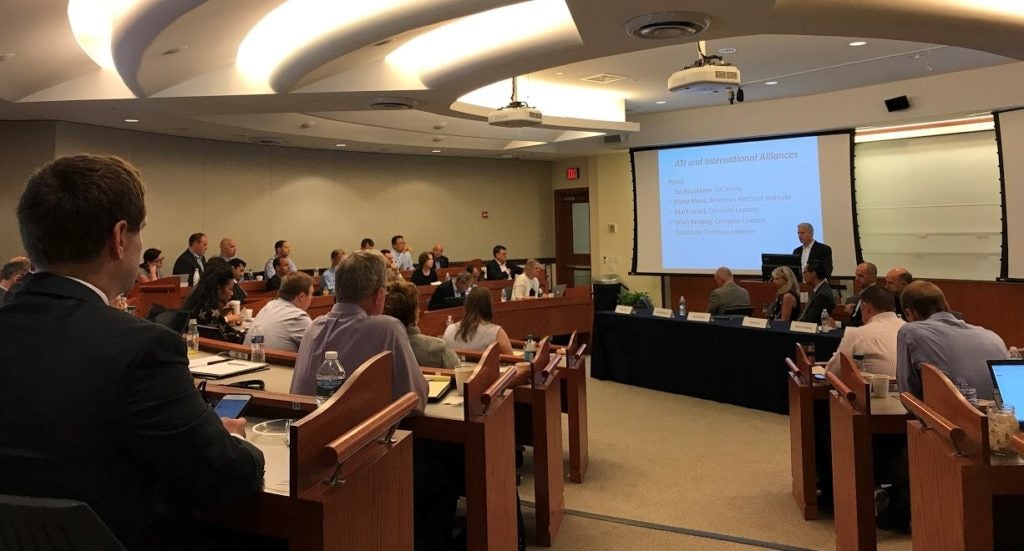CBPP hosts policy forum on title II, net neutrality, and the struggle for balance in broadband regulation
Posted in Announcements News

On July 12, 2017, the Georgetown Center for Business and Public Policy and a group of experts in both the history of internet regulation and current efforts to reform it had a rich discussion of how we got here and what lessons emerged for the future of internet regulation. The discussion opened with a question-and-answer session between Federal Communications Commission (FCC) Commissioner Michael O’Rielly and Georgetown Center for Business and Public Policy Executive Director John Mayo during which Commissioner O’Rielly shared his perspective as a staffer working on the Telecommunications Act of 1996.
The panel discussion was moderated by Larry Downes, Project Director and Senior Industry and Innovation Fellow, Georgetown Center for Business and Public Policy. The panel of experts included:
- Timothy J. Brennan, Professor of Public Policy and Economics, University of Maryland Baltimore County, and former FCC chief economist
- Harold Furchtgott-Roth, Director, Center for the Economics of the Internet, Hudson Institute, and former FCC commissioner
- Jonathan Spalter, President and Chief Executive Officer, USTelecom
Media Coverage
O’Rielly: Substantive comments more persuasive than ‘people letting off steam,’ TR Daily by Lynn Stanton (July 12, 2017)
Asked today about suggestions from parties responding to the Internet “day of action” (see separate stories) that the FCC should not be swayed by a large number of individuals filing in support of retaining regulatory classification of broadband Internet access under Title II of the Communications Act, FCC Commissioner Mike O’Rielly said that he gives them the weight they are due, but that he is more likely to be persuaded by substantive comments than by “people letting off steam.
During an event hosted by the Georgetown University Center for Business & Public Policy, Commissioner O’Rielly said he doesn’t “have separation” of comments submitted by members of the general public and comments submitted by stakeholders who are frequent participants in the agency’s policy proceedings.
He said that “a number” of the comments in the agency’s Internet freedom docket are admonishments in the form of “don’t be a blank blank blank – OK – I don’t know what to do with that.”
“I don’t take a head count,” the Commissioner said. “I don’t believe our process is a ‘Dancing with the Stars’ contest.” Rather, he said, the FCC is supposed to be guided by “the law and the record. The record can only have so much weight when there aren’t substantive comments. There’s only so much weight I can give them.”
Asked what he would do if he had “magical powers” to address the situation in which the FCC finds itself regarding adopting and enforcing open Internet protections, Commissioner O’Rielly said that if he were still on Capitol Hill, he would advise lawmakers that they should “put in the statute exactly what they mean.”
He added, “If you don’t what the Commission to do something, tell them.” And lawmakers should accept that if a provision they adopt “becomes outdated, then let a future Congress deal with it,” rather than trying to build enough flexibility into the law for the FCC to deal with changes in technology, business practices, and markets.
Asked whether the FCC has the tools it needs to advance telecommunications policy in the public interest, Commissioner O’Rielly said, “It’s not my job to try to stretch provisions of the law. If they do not provide that authority, it’s not my job to try to figure out how to get that authority.”
